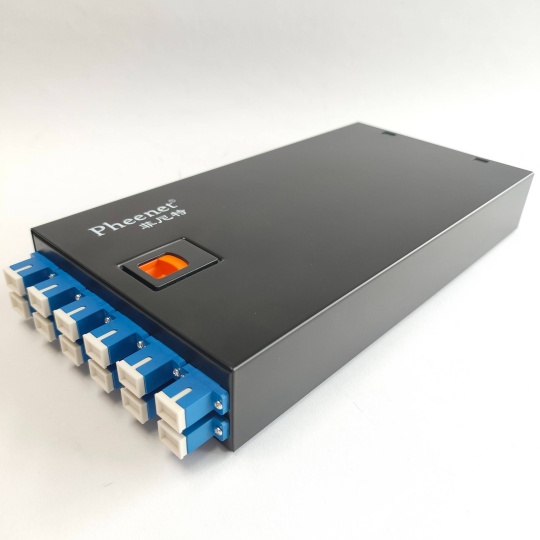What is the difference between industrial cable and extension cords
In daily life and industrial operations, cables and cords are essential for power transmission, but industrial cables and extension cords are often confused. However, their design purposes, performance indicators, and application scenarios differ significantly—choosing the wrong one can lead to safety hazards like overheating, short circuits, or reduced equipment lifespan. Below is a detailed breakdown of their core differences, along with practical selection advice.
1. Core Application Scenarios: Heavy-Duty Industry vs. Light-Duty Daily Use
The most fundamental difference lies in their intended use, which determines all other performance characteristics:
- Industrial cables: Designed for high-demand industrial environments. They power heavy machinery (e.g., manufacturing robots, assembly line equipment), industrial appliances (e.g., high-power welders, metal cutters), and infrastructure systems (e.g., factory power distribution, mining site power supply). These scenarios require continuous, stable power transmission under harsh conditions (e.g., frequent mechanical movement, exposure to chemicals).
- Extension cords: Intended for light-duty, temporary use in homes or small commercial spaces. Common uses include powering household appliances (e.g., blenders, lamps), office equipment (e.g., laptops, printers), or small tools (e.g., handheld drills). They are not built for long-term, high-load operation—for example, using an extension cord to power a industrial-grade air compressor may cause overheating.
2. Material & Protection: Durability for Harsh Environments vs. Basic Insulation
Materials directly affect durability and safety, and the two types of cords vary drastically in this regard:
- Industrial cables: Use heavy-duty, environment-resistant materials. Their conductors are usually made of thick, tinned copper (for anti-corrosion and low resistance), while the outer sheath often uses oil-resistant neoprene, flame-retardant PVC, or even halogen-free materials. This design withstands extreme temperatures (-40°C to 105°C), chemical splashes (e.g., machine oil, solvents), and mechanical abrasion (e.g., being dragged over concrete floors). Some industrial cables also have waterproof or dustproof ratings (e.g., IP67) for outdoor or wet environments.
- Extension cords: Prioritize cost-effectiveness and portability over durability. Conductors are typically thin copper or even copper-clad aluminum (lower conductivity), and the outer sheath is thin PVC. This material cannot resist high temperatures (it may melt above 60°C) or chemical exposure (e.g., gasoline spills can dissolve the sheath). They also lack protection against heavy impacts—frequent bending or stepping on them can crack the insulation.
3. Safety Standards: Strict Industrial Certifications vs. Basic Household Compliance
Safety standards are non-negotiable, and industrial cables must meet far higher requirements:
- Industrial cables: Comply with global industrial safety standards, such as IEC 60245 (International Electrotechnical Commission for flexible cables), UL 1015 (Underwriters Laboratories for industrial wiring), or GB/T 5013 (Chinese standard for rubber-sheathed cables). These standards mandate features like overload protection, short-circuit resistance, and low smoke emission (to reduce toxic fumes in factory fires). Many industrial cables also have ground wires (3-core or 4-core designs) to prevent electric shock from equipment leakage.
- Extension cords: Follow basic household safety standards, such as UL 817 (US) or IEC 60884 (global for power cords). These standards only require basic insulation and current-limiting protection (e.g., fuses in some models). Most extension cords are 2-core (no ground wire), making them unsuitable for metal-cased industrial equipment—leakage could cause electric shock.
4. Current-Carrying Capacity: High Loads vs. Low Power Limits
Current-carrying capacity (ampacity) determines how much power a cord can handle, and the gap here is substantial:
- Industrial cables: Have high ampacity to support heavy machinery. Common ratings range from 16A to 100A or higher (e.g., a 3x6mm² industrial cable can carry 40A, enough for a 9kW welding machine). The conductor cross-section is larger, and the sheath is designed for heat dissipation—even under continuous high-load operation, the temperature rise stays within safe limits (usually ≤30°C above ambient).
- Extension cords: Have low ampacity, typically 10A or 13A (suitable for ≤2.5kW devices). A standard 2×0.75mm² extension cord can only carry 10A—using it for a 3kW space heater will cause the conductor to overheat, melting the insulation and risking a fire.
5. Durability & Customization: Long-Term Reliability vs. Disposable Convenience
- Industrial cables: Built for long-term use (5–10 years or more). They resist fatigue from repeated bending (e.g., cables for robotic arms that move thousands of times daily) and can withstand vibration (e.g., in construction equipment). Many are customizable—lengths (from 10m to 1000m), connectors (waterproof, explosion-proof), and sheath materials can be tailored to specific industrial needs.
- Extension cords: Are semi-disposable. Their thin sheath and conductors degrade quickly under frequent use—most need replacement after 1–2 years. They come in fixed lengths (1.5m, 5m, 10m) with standard plugs (e.g., Type A for the US, Type G for the UK) and cannot be customized for special environments.
Practical Selection Guide
To avoid mistakes:
- If powering industrial machinery, high-power tools, or equipment in harsh environments (chemicals, extreme temperatures), choose industrial cables—check the ampacity, insulation material, and safety certifications first.
- If using household appliances or small office devices temporarily, choose extension cords—never use them for industrial equipment or long-term high-load operation.
Choose FRS for Reliable Industrial Cables
When it comes to industrial cables that meet strict standards and durable needs, FRS brand factory is your trusted partner. FRS specializes in manufacturing industrial cables compliant with IEC, UL, and GB standards—our products use high-purity tinned copper conductors and oil-resistant, flame-retardant sheaths, ensuring stable power transmission even in extreme industrial environments (mining, manufacturing, energy). We offer custom solutions (length, connectors, insulation) to match your specific equipment and 场景,and every cable undergoes strict testing (ampacity, temperature resistance, insulation) to guarantee safety and long lifespan. For industrial operations that demand reliability, FRS industrial cables are the smart choice.











